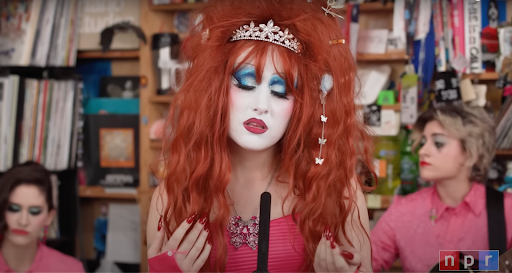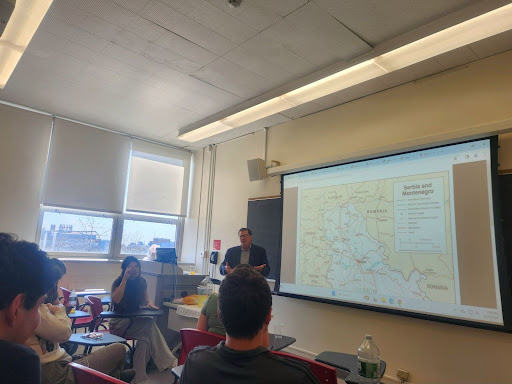Coca-Cola, arguably one of America’s favorite soft drink companies and the only one that has a contract with St. John’s, is facing a potential wave of controversy worldwide.
The company has been accused by Global Exchange, a world-wide human rights group, of being involved in the murders of several union leaders and workers in their plants in Colombia.
AWeb site, Killer Coke (www.killercoke.org), was launched in Oct. 2004. The site operates under the motto, “Murder-It’s the real thing.” The Killer Coke site was created by Ray Rogers, a pro-union activist, and documents the deaths of eight Coca-Cola union leaders between 1989 and 2004, as well as other Coca-Cola employees who have allegedly been tortured, kidnapped and/or illegally detained by violent paramilitaries. The Web site claims that the paramilitaries often work closely with Coca-Cola plant managements.
In addition, the Web site also claims that the union leaders from several bottling plants in Colombia were killed after filing complaints about the soft drink company’s labor practices. Coca-Cola is currently being sued in federal court for its role in such violent attacks on labor in Colombia and India.
The alleged murders took place in the Colombian towns of Pasto, Carepa, Monteria and Baranquilla, according to the Web site, which quoted witnesses who said paramilitaries barged into bottling plants, killing some men and intimidating others with such threats as “If you want to live beyond today, get out of this area.”
Only recently, however, have the Web site and its claims garnered attention from news outlets and college campuses across the country.
A spokesman for the Coca-Cola Company dismissed the allegations and believes the company is being unfairly targeted.
“One person who worked with a [bottler] was killed,” said Pablo Largacha, director of public affairs and communications for Coca-Cola. “They are using one death to initiate a campaign.”
For several years, Rogers has been visiting college campuses across the county, rallying student support of his movement and persuading some of these colleges to end their contracts with Coca-Cola.
Two of the most prominent universities to take up Rogers’ cause are New York University, which banned Coca-Cola products in December because of Coke’s failure to comply with an independent investigation of the accusations, and the University of Michigan, which suspended its Coke contract in early January after an outcry from the student body.
“Everyone had been protesting Coca-Cola, trying to get the university to cut their contract with them,” said Benjamin Hopp, a sophomore at the University of Michigan.
Rutgers University also has ended its contract with the soda giant, as well as 21 other colleges worldwide.
At St. John’s, which initiated a contract with Coca-Cola just prior to the Fall 2005 semester, few students have heard of the Killer Coke campaign or its claims. When told of the situation, the responses of students were mixed.
Freshman Pat Passarella was in favor of the University following the example set by NYU and Michigan by cutting its contract with Coke, but said that until that happens, he will probably continue drinking Coke products.
“Honestly, it’s so hard to find any other products on campus, we really don’t have a choice but to drink Coke,” Passarella said.
Freshman Legal Studies major Joe Lawlor, however, was indifferent to the claims made by Killer Coke.
“I just like Coke more [than Pepsi],” Lawlor said. “How it gets to my mouth doesn’t really make a difference.”
His feelings were echoed by another student who said that the claims made by Killer Coke would not affect his decision to drink Coke. “If it’s true, Pepsi probably does the same things,” he said, declining to give his name.
While Coca-Cola disputes all of Rogers’ claims, saying that he has no evidence to support what he says, he is gaining followers and gaining speed as he works to spread his message around the world.
“In parallel to the legal processes, the plaintiffs [in the lawsuit] hired a PR firm, led by Ray Rogers, which specializes in campaigns against corporations,” Largacha said.
Rogers claims that over 100 other colleges in the US have contacted him about possibly staging protests on their campuses.
St. John’s officials were unable to comment on the matter before deadline.















